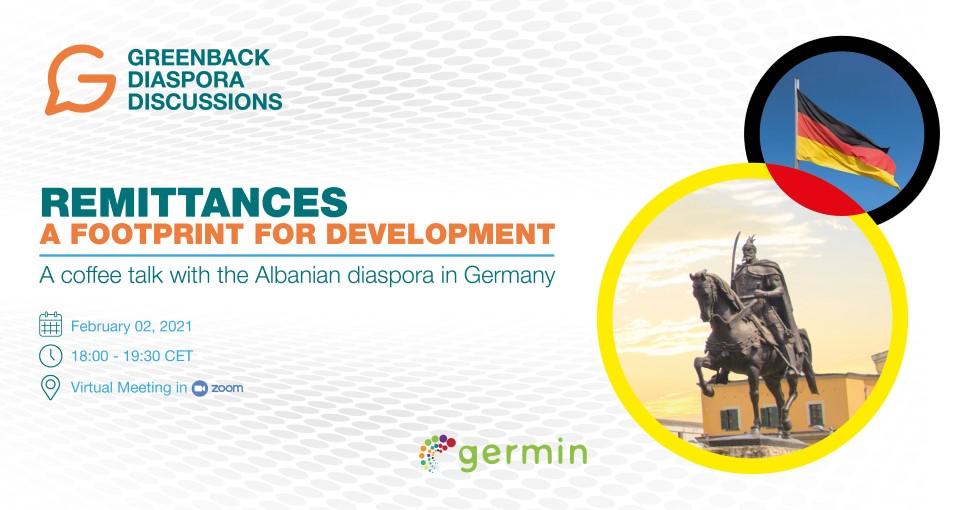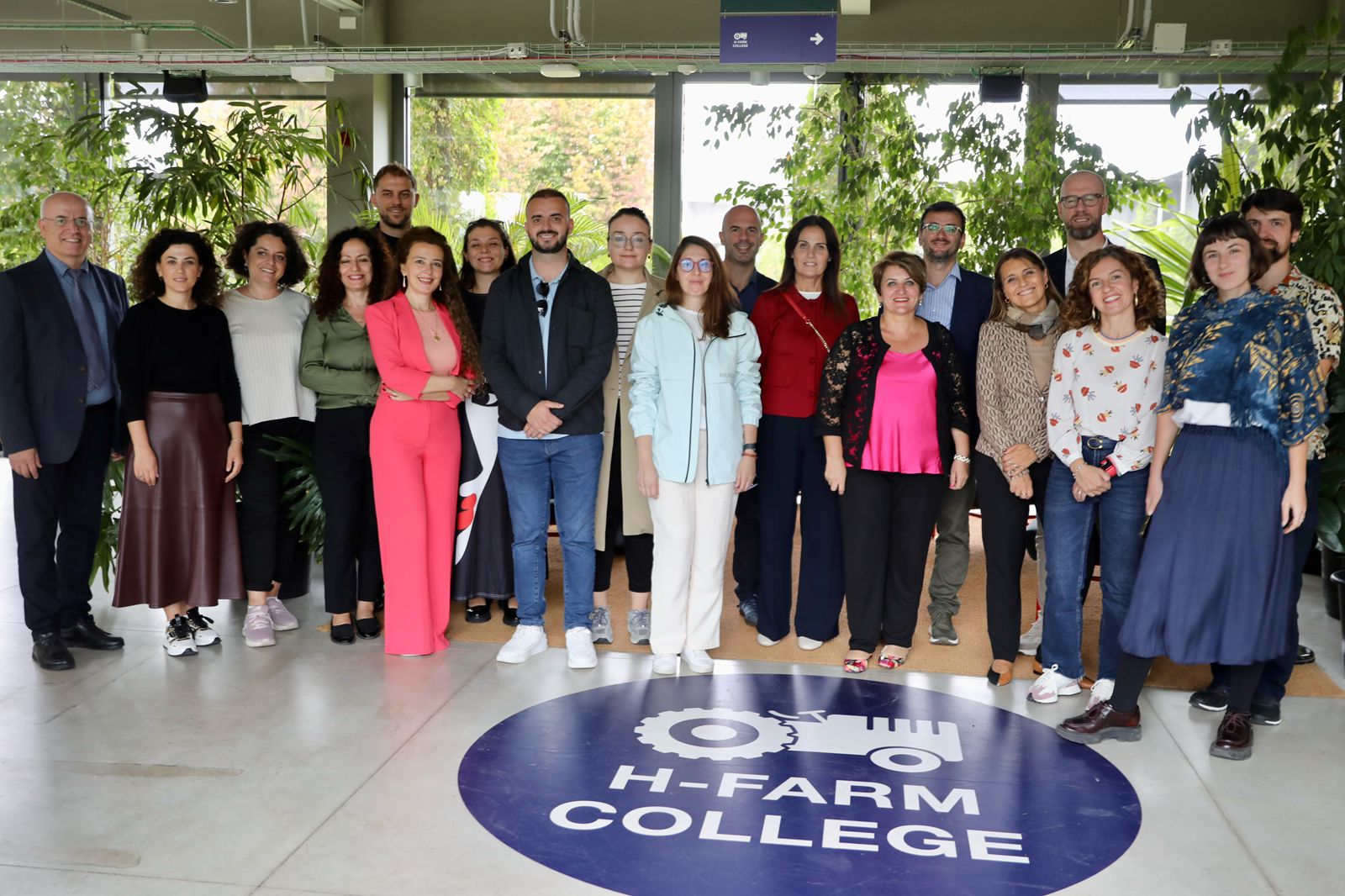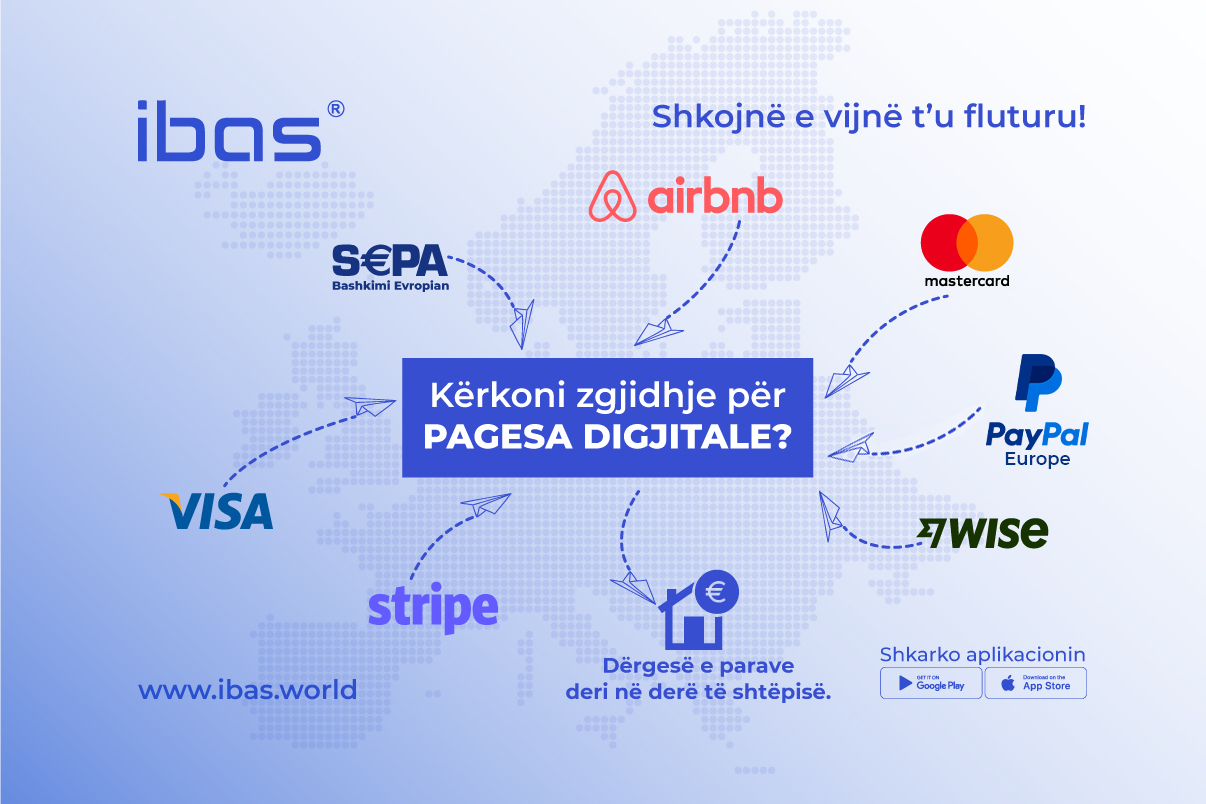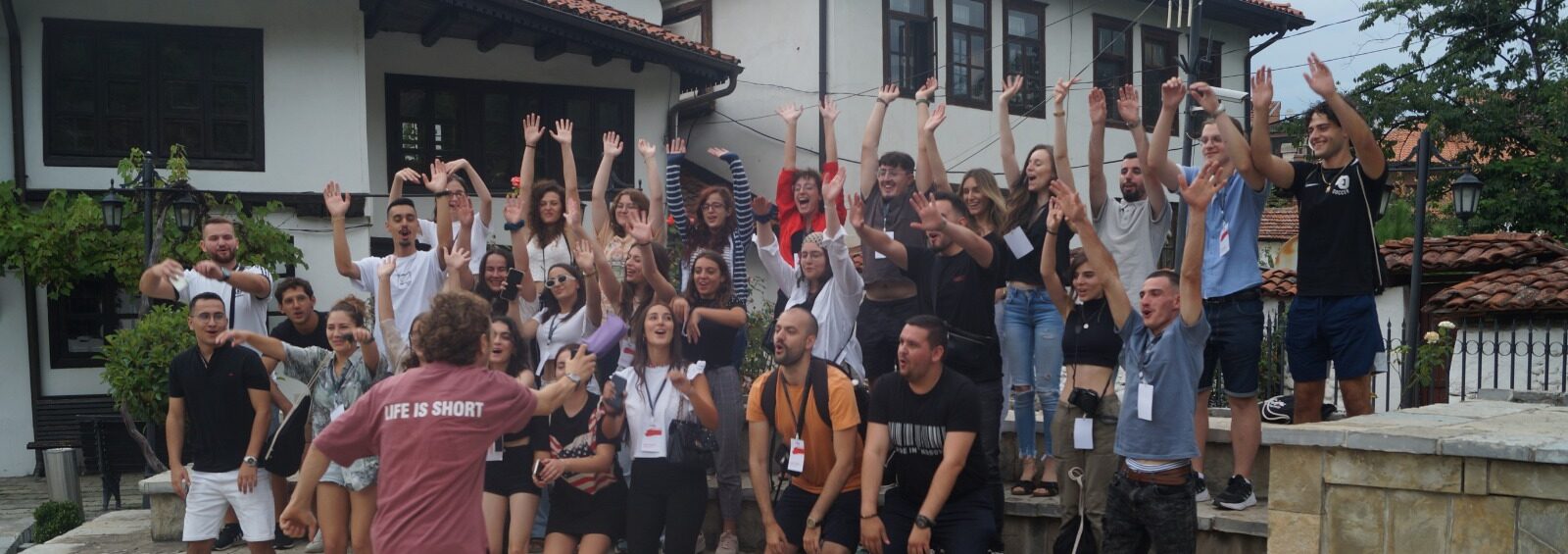GERMIN in cooperation with World Bank Albania organized the virtual meeting: Remittances – a Footprint for Development. This event brought together 49 participants on ZOOM and above 40 on Facebook Live from the Albanian German diaspora members and the key stakeholders pertaining to remittances in Albania.
Amarildo Çeka, country coordinator for GERMIN Albania, welcomed everyone and stressed the importance of remittances. “Remittances account for over 10% of Gross Domestic Product inAlbania and are a major source of income for many households. However, despite these numbers, remittances are failing to have the maximum effect on the economic development of their countries.”-said Mr. Ceka

Edlira Dashi, financial sector specialist at the World Bank mentioned that during the year of the pandemic, the decrease in remittances for Albania was only 6 percent, compared to world countries, where it is estimated to be 14 percent. In social terms, remittances make up 1/3 of a family budget. In addition, she touched upon the fact that the level of Albania’s dependence on remittances is the second in the region and the main flow of remittances comes from Greece and Italy and mainly a significant part of remittances come in informal ways.
Rozeta Kokalari – employee of KPMG, an audit and consulting company in Germany touched upon the issue of the transfer of diaspora money to the home country which is done manually and not through a banking system. According to her, this is due to two reasons: the high cost of transfers and the lack of information. Regarding the issue of the cost of transfers, Mrs. Kokalari proposes that the state undertake policies such as “income tax exemption”.

Dr. Gresa Latifi, lecturer and researcher at the Technical University of Munich, Germany, proposed the creation of an institutional infrastructure which would create opportunities to invest in the country through various start-ups. A practical proposal, based on the practices of other countries is the issuance of securities where in this case the members of the diaspora would be paid for their contributions which would be distributed in the home country.
Suela Kalia, advisor – Returning Experts and Diaspora Cooperation, part of the Deutsche Gesellschaft für Internationale Zusammenarbeit’s Programme Migration & Diaspora presented the Albanian German audience with a portal which compares over 20 banks and other financial service providers that offer remittances services to more than 25 countries. The service is free of charge and independent.
Fatos Cocoli, expert on economic affairs at the Ministry of Diaspora stated three main needs. First, encourage and increase the transfer of money from the diaspora through formal channels. Second, the orientation regarding spending this money more effectively and lastly, to be able to attract new diaspora savings in the country’s banking or investment channels.
The discussion was then focused on the audience which was engaged throughout the meeting on the chat. Questions from the audience were answered from the panelists and a well rounded discussion occurred.
GERMIN in collaboration with the World Bank is organizing a series of events with the Albanian Diaspora around the world and financial sector experts in Albania to discuss challenges and opportunities related to remittances, as an important catalyst of economic development.
The series is developed in the context of Project Greenback, the financial education component of the Remittances and Payments Program (RPP), funded by the Swiss Secretariat of Economic Affairs (SECO) and implemented by the World Bank in partnership with the Bank of Albania.




